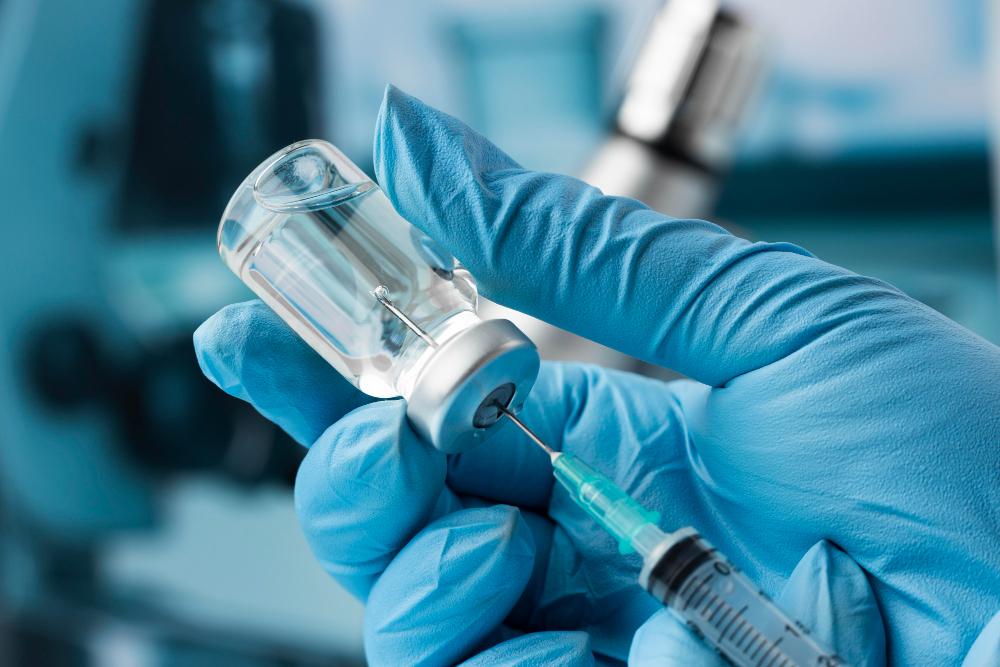Herpes Zoster and Shingrix Vaccine

Herpes zoster, or to use the more common name, shingles, is a viral infection that is caused by the same virus that causes chickenpox, but the conditions are not the same. If you have had chickenpox as a child, your body, with the help of medication, would have fought off the symptoms of the infection, but the virus remains dormant in the body. In adulthood, there are various factors that could cause the virus to become active again, but this time it will be in the form of herpes.
In the case of herpes, a painful and tender rash and/or blisters appear on the skin. These are typically confined to one part of the body. There is no cure as of now for herpes, but there are vaccines available to prevent the condition from developing.
Who Is at Risk?
Herpes develops in approximately 10% of those who contracted chickenpox as children. The risk of herpes increases significantly once a person crosses the age of 50. Among the factors that increase the possibility of herpes developing are:
- Advancing age
- A weakened immune system caused by diseases such as HIV and cancer
- Receiving an organ transplant
- Undergoing chemotherapy
- Having undergone trauma
- Being under severe stress – this is thought to be the most common reason for herpes among otherwise healthy people.
Also Read: What Is Herpes? - Types of Herpes
Herpes Symptoms
The typical early or starting symptoms of herpes include:
- Fever, recurring severe headaches
- Chills
- Exhaustion
- Stomach upsets
- Light sensitivity
As the condition develops, the following symptoms appear:
- Itching, burning or tingling sensation in a specific area of the skin
- The affected area becomes red and inflamed
- A rash develops in that area
- Pain (often severe) in the affected area
- Blisters full of fluid form that turn into scabs when they burst open
In a few cases, herpes may not cause rashes or blisters, but if the other symptoms are present, it usually indicates a herpes attack.
Herpes Diagnosis
An examination of the severity and extent of the rash and/or blisters on the skin is often enough for a diagnosis to be made. In case of uncertainty, laboratory tests of skin scrapings and fluid from the blisters can be used to confirm the diagnosis.
Treatment/Management
There is no cure available at present for herpes zoster. However, there are various treatments available for treating the symptoms. These include:
- Antiviral medications
- Over-the-counter pain relief medications
- If required, anti-inflammatory drugs may be prescribed
- Topical lotions and ointments to ease the discomfort of the rashes and blisters
While herpes cannot be transmitted through person-to-person contact, it is advisable for people suffering from the condition to isolate themselves until the visible symptoms disappear.
Potential Complications
After the rashes and blisters disappear, dark patches may remain on the skin surface. Ointments may reduce the extent of discoloration.
A more severe possible complication is severe nerve pain that remains after the visible symptoms have gone. This is known as post-herpetic neuralgia and may, in some cases, last for months and even years. Post-herpetic neuralgia can be treated by the application of special lotions and creams or with steroid injections and nerve blocks. The course of treatment will be decided by a medical specialist after various tests and examinations have been done.
There is a common myth that once a person has had herpes, it cannot happen again. This is wrong. More than one episode is possible. In case of subsequent outbreaks, the rash usually does not occur on the same part of the body as the first instance.
Also Read: Symptoms You Should Never Ignore
Shingrix Vaccine
There are 2 vaccines available to prevent herpes from developing – Zostavax and Shingrix. Zostavax is now not being prescribed in many parts of the world and Shingrix is the medically preferred option. Shingrix is what is known as a recombinant zoster vaccine and is not a live virus vaccine. Administering Shingrix is an effective way of preventing herpes from developing in those who have not had it previously as well as for those who have suffered from earlier outbreaks. It can be given to those who may have had Zostavax in the past. In rare cases, people who have been vaccinated could still suffer from shingles, but in those cases, the attack is weak and lasts for a shorter period. Studies show that Shingrix provides protection from herpes for approximately 7 years. The vaccine is administered in two doses, a few months apart.
Shingrix does not normally result in any side-effects. However, in a few cases there could be:
- Temporary weakness or dizziness
- Rapid heartbeat
- Swelling of the throat or face
- Heavy breathing
Medication will control these side-effects until they wear off.
Herpes is not a fatal disease, but it can be painful and incapacitating. It is not an ailment to be ignored and the complications that arise from it can be serious. The best way of knowing whether you are at risk of herpes and if you need the Shingrix vaccine is by going to a leading multispecialty hospital where there will be medical specialists and advanced diagnostic and treatment facilities available to evaluate your risk factors and prescribe the best course of preventive action. If you already have herpes, the hospital is where you will find the best treatment options.
Because herpes is a relatively common condition, people often do not take it seriously and think that like other common ailments, it will fade away on its own. This is wrong and as already stated, the severe discomfort, possible lasting skin damage and complications such as nerve pain mean that the use of the Shingrix vaccine is an important matter that you should discuss with a doctor.
- Jun 07, 2024
